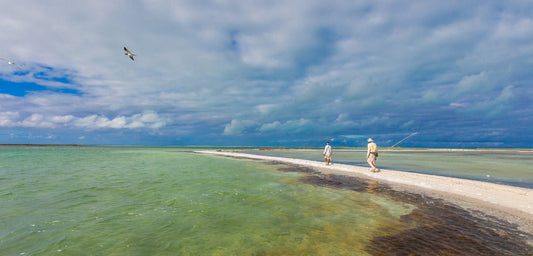If you can consistently fool trout on the South Platte, fishing is a little easier everywhere else."
The South Platte River is one of the most special places in the world. As a Colorado native, I’ve been blessed with the opportunity to fish it since I was a young boy. It was my favorite river back then, and still is today. That’s a pretty strong statement when you consider that I have fished all over the world, from Alaska to Patagonia, and everywhere in between.
Later in life, I had the good fortune to share my passion with others by guiding on one of the most technically challenging rivers in the west. There’s a common belief among South Platte regulars, that if you can catch fish on the South Platte, you can catch fish anywhere in the world. I whole-heartedly agree—the South Platte River can humble the best of anglers on any outing. In my opinion—that’s what makes the South Platte even more appealing to me.
The South Platte has taught me so much. In many cases, I have learned more when I don't catch fish than when the catching comes easily. The South Platte is my home river, the river that has shaped me as a person and an angler. I’ve been able to take what I learned on the South Platte and apply that knowledge to other fisheries around the world. If you can consistently fool trout on the South Platte, fishing is a little easier everywhere else.
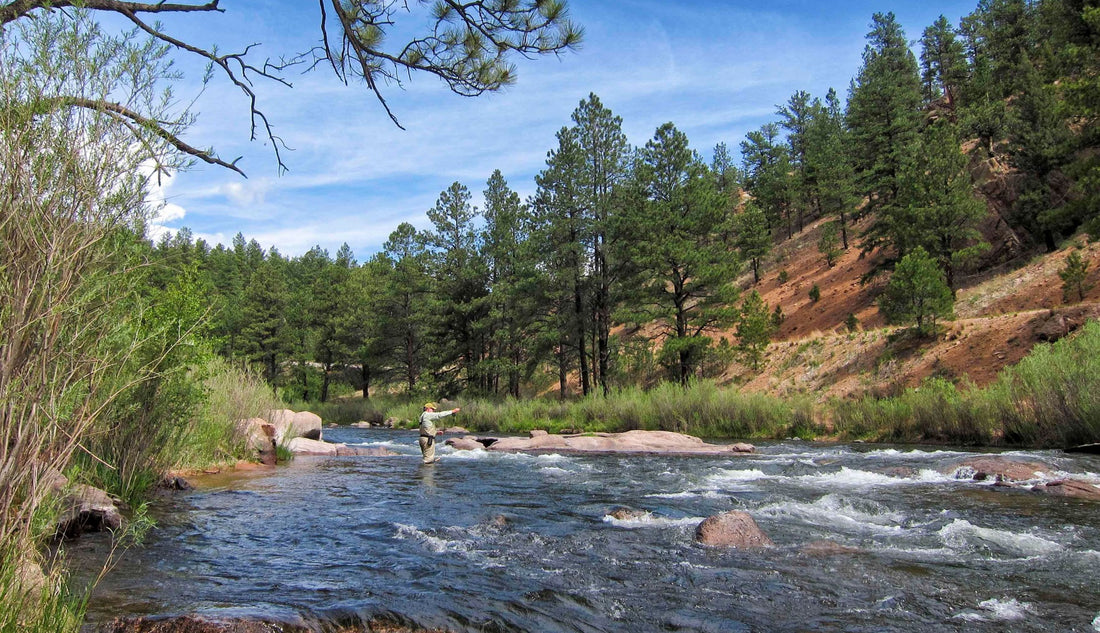
The self-staining population of wild rainbow and brown trout elevates this world-class fishery into a league of its own. Anglers from around the globe have come to see what all the hype is about. It doesn’t take them long to figure out that the South Platte is among the best trout fisheries in the world.
The South Platte River, like any river, has seen its fair share of challenges in the past three decades. First was the onset of Whirling Disease, then came fire, then flood, then drought, and now an increasing number of anglers frequenting the area “loving the river” to death. Many of our trout streams are experiencing similar scenarios.
As stewards of the environment, it’s important that we all do our part to preserve the future of our wonderful trout streams. It’s the little things that matter most—respecting the resource and those around you. Begin by practicing good etiquette, and always take the high road when others are present. A little common sense goes a long way on the river. And we must all give back, in some shape, or form.
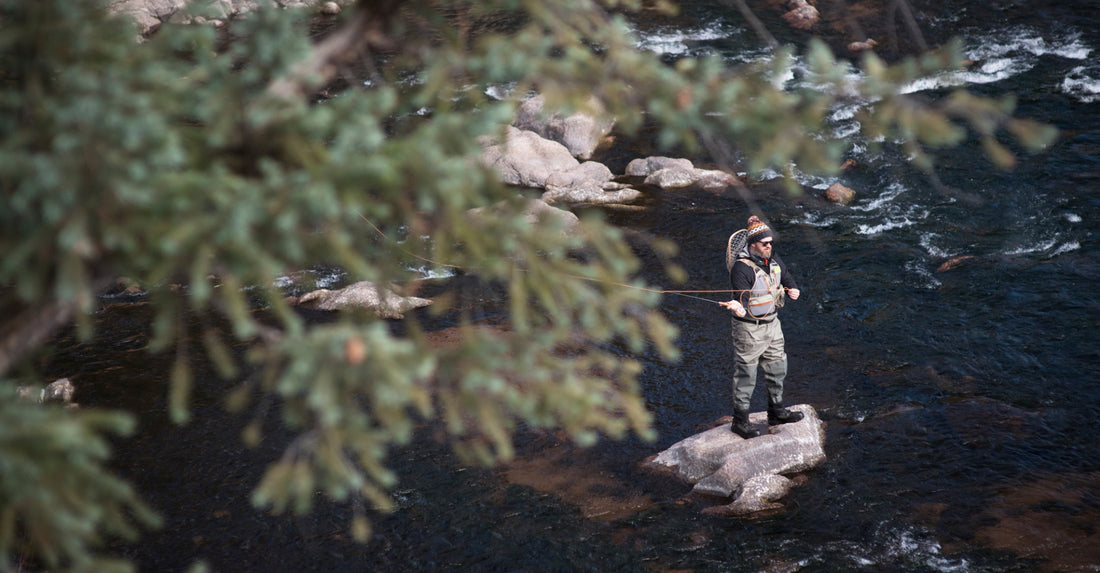
Make it a point to pinch down your barbs to reduce any stress on the fish and always try to release our finned friends as quickly as possible. There is nothing wrong with taking a quick photo; it helps tell “the story” about a wonderful day on the water. It’s important to take care of the fish however! Keep them in the water prior to the photograph, wet your hands before handling the fish, and return them quickly to fight another day.
Try and share your knowledge, fly patterns, and passion with others. We’re all in this sport together, help others when you can, especially kids. Kids are the future of our sport, please be generous to them. Be cordial to your fellow anglers, strike up a conversation, or ask them how their day is going? If they’re having difficulty, for whatever reason, offer them some helpful advice.
Drive slowly on gravel roads when others are present; there is nothing worse than trying to eat lunch, fish a stretch of river along the road, or drink a beer at the day’s end, when someone kicks up a lot of dust when you’re trying to enjoy the moment. The fish are not going anywhere, so slow down, so others can enjoy the experience too.
Don’t be a “hole hog”—fish a riffle, run, pool, or stretch of pocket water, for an hour or so; then move on. It’s poor etiquette to stay in the same hole for several hours or the entire day. Plus, challenge yourself to catch fish in other locations, that’s how you grow as an angler.
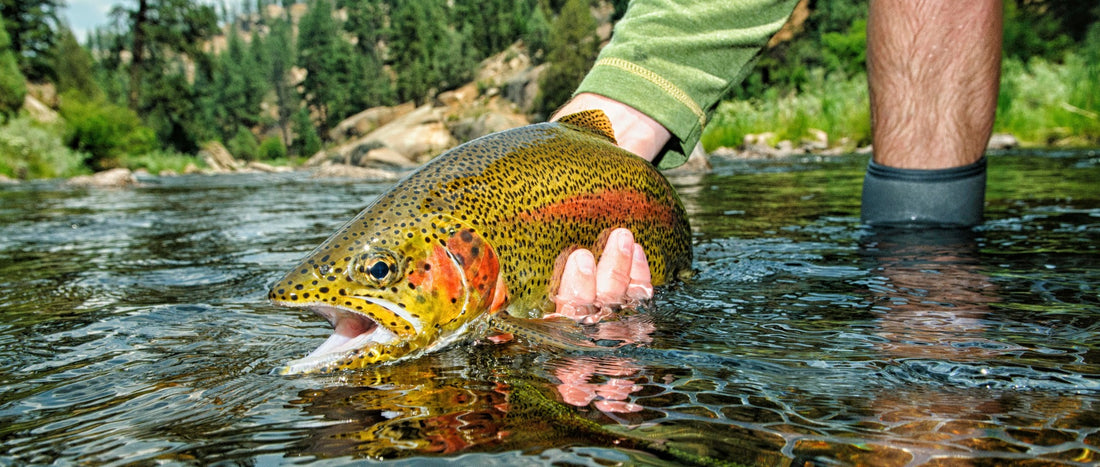
Be courteous to guides, they are making a living. Give them a break and the benefit of the doubt, as they continually educate the masses on tactics, techniques, conservation, etiquette, and the proper handling of fish. It’s important that guides lead by example, setting the standards for integrity, professionalism, safety, and the proper behavior on the river at all times.
Anglers moving upstream have the right of way. Don’t “short hole” them, give your fellow angler at least a couple holes, or even more, if it’s not crowded. A little communication goes a long way on the stream. If it's crowded, then everyone has to compromise and work together, this is especially true on weekends.
Avoid standing on high banks across from an angler, and try to give fellow anglers a wide berth on a trail if you are walking past them. There is nothing worse than someone spooking your rising pod of fish when they walk past the hole you are fishing. This is easily avoided with a little common sense.
And finally, avoid confrontation at all cost, you’re out on the water to relax, there's no sense in getting worked up. If you treat others as you would like to be treated, the river will be a much more enjoyable place. We must all work together to preserve the future of our sport.
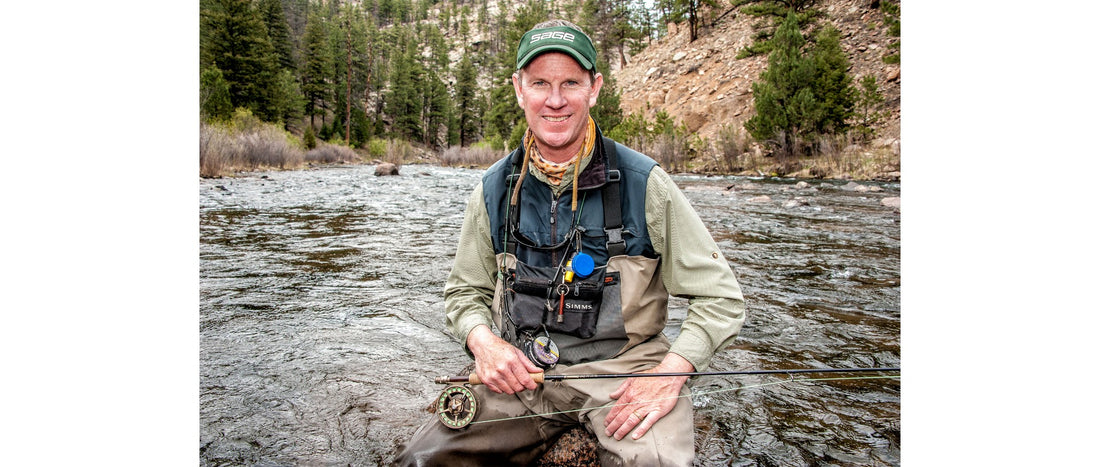
As a native of Colorado, Pat Dorsey has been guiding customers of all abilities for nearly 30 years. Pat spends well over two hundred days a year on the water, a combination of guiding clients, hosting destination travel-trips, and personal days on the water. He is also the head guide and a co-owner of the Blue Quill Angler fly shop in Evergreen, Colorado, where he oversees and trains more than 25 guides, setting the standard for integrity and professionalism in the Blue Quill Angler guide operation.



